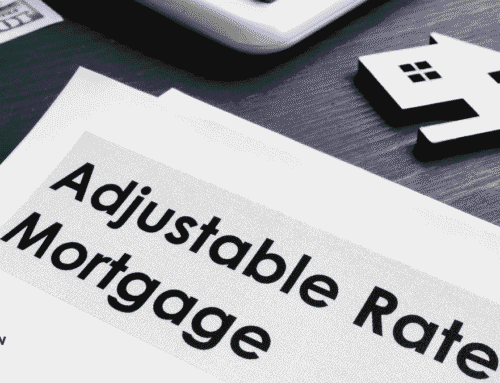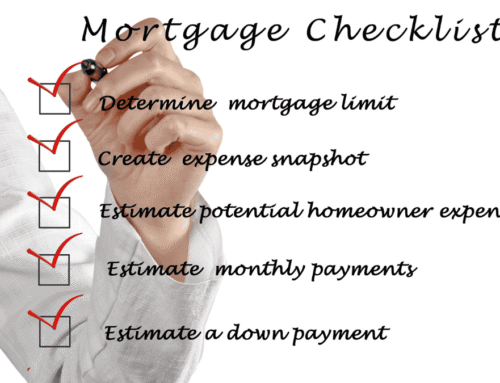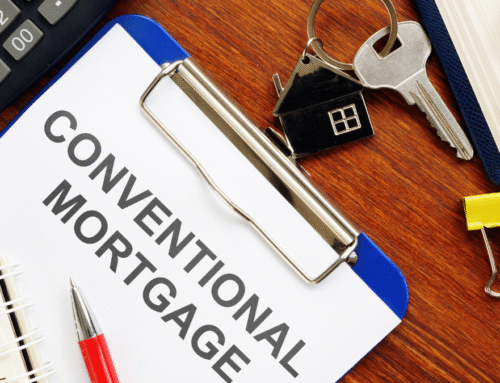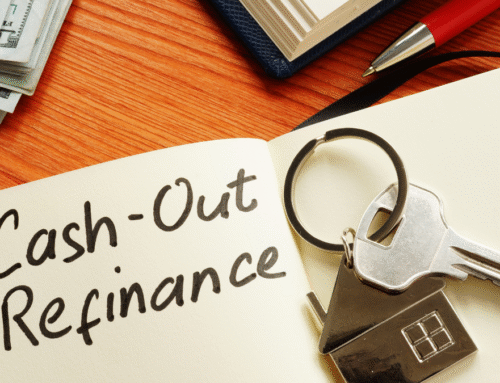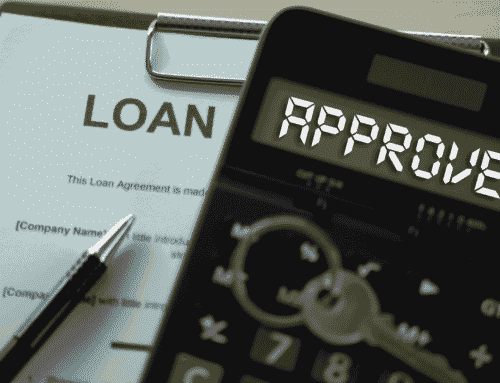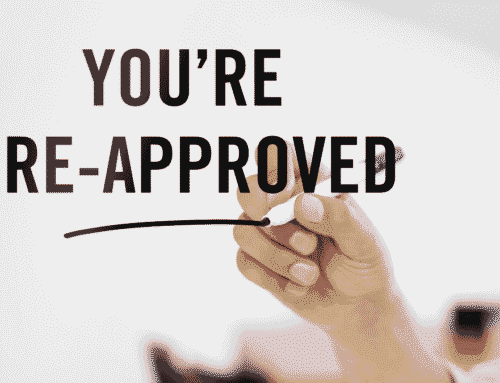Top 5 Red Flags and Scams in DSCR Lending (And How to Avoid Them)
Top 5 DSCR Lending Red Flags and Scams I’m Seeing Right Now in 2025
Updated: August 13, 2025
DSCR loans are a powerful tool for real estate investors, especially for those who are self-employed or have complex financial situations. They have helped me finance over 120 of my own rental properties. But because DSCR lending is a less regulated part of the mortgage industry, it has also become a target for misleading practices and scams. I can’t tell you how many clients I have worked with who did (or nearly did) lose a significant amount of time and money with dodgy DSCR lending practices.
As more investors enter the market, it’s more important than ever to know how to spot red flags and avoid being taken advantage of. In this guide, I’ll share my experience and the red flags I’ve learned to watch out for. This isn’t about scaring you away from DSCR loans; it’s about empowering you with the knowledge you need to get a great deal safely and successfully.
Key Takeaways
- Red Flags are Real: In the DSCR lending market, be on the lookout for “bait and switch” tactics, including unrealistic rates and hidden fees.
- Proactivity is Your Best Defense: The most effective way to avoid scams is to do your own due diligence, demand transparency, and trust your instincts.
- Demand a Term Sheet: Never pay an upfront fee directly to a lender or broker. A legitimate lender will provide a clear, detailed term sheet before any money changes hands.
- Work with an Expert Partner: The best way to protect yourself is to partner with an experienced DSCR broker who can act as your advocate and help you navigate the market safely.
VIP PRIORITY INVESTOR LIST
Get the Best DSCR Loan Deals and Off-Market DSCR-Ready Investment Properties in Your Inbox Every WeekYES! ADD ME TO THE PRIORITY INVESTOR LIST
The Top 5 Red Flags and Scams to Watch Out For
In my experience, almost all DSCR lending red flags and scams fall into a few key categories. By understanding what these are in advance, hopefully you’ll be able to spot them before you get ripped off – or waste a ton of time and effort. Here are the top five red flags you need to watch out for.
Red Flag #1: Unrealistic or “Too Good to Be True” Rates
The most common DSCR scam (or at least malpractice) that I see is the classic “bait and switch.” This is where a lender or broker advertises a DSCR loan rate that is significantly lower than what everyone else is offering. You get excited about the low rate, fill out their application, and provide all your documents for underwriting. But then, right before closing, they hit you with a higher rate and/or additional fees.
The problem is that at this point, you’ve already invested a lot of time and money, and the closing date is fast approaching. In a lot of cases, delaying closing might mean losing the deal – especially when buying investment properties. So, you might feel pressured to take the worse deal.
Remember, if a rate or terms seems too good to be true, it almost certainly is. The best way to avoid this is to compare the rate to at least three other lenders before you start the underwriting process. This will give you a good idea of what the market average is and help you spot any outliers. Also, be realistic. If conventional mortgage rates are at 6.5% – you’re probably not going to get that 5.5% they’re quoting on a DSCR loan.
Red Flag #2: Hidden Fees and Upfront Costs
Another classic scam is when a lender or broker asks for a large upfront fee to “lock in” a rate or to “process” the loan, without providing a clear, detailed term sheet. NEVER pay upfront fees directly to your lender! The only place you should be sending any funds is to the escrow company handling your closing.
A legitimate lender will only charge for services that are rendered, like an appraisal or inspection. And these fees are typically invoiced by a third party, which you can pay directly to them using an insured credit card. If a broker asks you for a “processing fee” or a “loan commitment fee”, it is a big red flag.
Always verbally confirm wiring instructions using a known phone number for the escrow/title company. Never rely on emailed instructions alone. BEC scams target real-estate wires. If something seems off, contact your bank and report at ic3.gov.
Red Flag #3: Vague or Changing Loan Terms
One of the biggest DSCR lending red flags is a lack of transparency. A reputable lender will provide you with a clear, detailed term sheet or loan estimate upfront. This document should outline the interest rate, LTV, fees, and any prepayment penalties.
A sketchy broker might avoid giving you this document or will provide a vague one that doesn’t have all the details. Even worse, some will change the loan terms unexpectedly right before closing (see above), leaving you with no time to arrange alternative funding. My rule is simple: if a broker is vague about the terms, or the terms change without a good reason, I walk away. There are too many good DSCR lenders out there to waste your time on bad ones.
Red Flag #4: Lack of Communication and a Poor Reputation
This red flag is often overlooked, but there really is no excuse. A loan officer who is difficult to reach, avoids direct questions, or provides generic, non-committal answers is a red flag. A good DSCR lender will be communicative, professional, and transparent. They will want to build a relationship with you.
A broker with a bad reputation is also a huge red flag. Always check their reviews on Google, BiggerPockets, and other forums. Ask for references and don’t be afraid to ask your broker about their experience with a particular lender. The broker I work with providing DSCR loans for my Canadian clients buying rental properties in the US is super responsive. I know I can call him at 9pm with a question, and he’ll respond with an answer, even if just to say he’ll get back to me in the morning.
Red Flag #5: The Disappearing Broker
This might be the most dangerous red flag of all. This ties in with paying upfront fees (see above). Ultimately, the broker will go dark after you’ve paid an upfront fee. This is a classic fraud tactic, and a legitimate, experienced broker will not do this.
While a broker might be busy, they will always stay in touch, especially as the loan process moves forward. If you’ve paid a fee and can’t get in touch with your broker, you may have been scammed. If this happens, you should immediately contact your bank to try to reverse the charge. I’ve heard some horror stories about investors losing tens of thousands of dollars to this type of scam. To protect yourself, I highly recommend working with a well-known broker with a long track record of success.
Related: How to Improve the DSCR for a Rental Property – My Step by Step Guide
| Item | Legitimate | Red Flag / Scam |
|---|---|---|
| Rates & Quotes | Quoted within typical market range; pricing explains LTV/DSCR/prepay effects. | “Too good to be true” teaser rates, then last-minute changes (“bait & switch”). |
| Fees | Only third-party costs (e.g., appraisal) invoiced by the provider; funds go to escrow/title. | Large **upfront fees** paid directly to a broker/lender before a clear term sheet. |
| Disclosures | Clear **term sheet** detailing rate, LTV, fees, prepay, conditions. | Vague/incomplete “letters,” or terms that change without explanation right before closing. |
| Reputation | Searchable track record; verifiable entity and (where applicable) NMLS. | No online footprint; poor reviews; evasive about licensing or references. |
| Communication | Responsive, answers specifics in writing; assigns a direct contact. | Ghosting; generic replies; pressure to move fast without documentation. |
| Funds & Wires | All funds move through escrow/title with **phone callback verification** of wire instructions. | New wiring instructions by email/text without verification; pressure to send immediately. |
Note: Consumer-purpose mortgages have specific disclosure rules; many DSCR loans are business-purpose and use a detailed term sheet instead. Always request full fee/rate/prepay details in writing.
Pro Tips: How to Protect Yourself From DSCR Lending Scams
While the DSCR lending market has its share of red flags, it’s not all bad news. There are some fantastic lenders and brokers out there offering great terms and service. The best way to protect yourself is to be proactive and stay informed. In my experience, these four simple tips have helped me and my clients avoid scams and get the best possible deals on our DSCR loans.
Tip 1: Do Your Due Diligence
Before you even begin the loan application process, do your homework. Take the time to research the broker or lender you intend to work with. Remember, real estate is a team sport, and the success or failure of your real estate investing journey will depend heavily on competency, capability, and capacity of the team you build to support you.
Look up their name on Google, check their website, and read reviews. A reputable lender will have a solid online presence and a history of positive feedback. If you can’t find much information on them, or if the reviews are consistently negative, it’s a huge red flag. A great broker will be proud to share their track record of success, and should have no problem giving you references from past clients.
Verify companies/individuals via NMLS Consumer Access (where applicable) and check for recent regulatory actions in your state.
Tip 2: Demand a Detailed Term Sheet
A term sheet is your best friend. It’s a non-binding document that outlines the key terms of the loan, including the interest rate, LTV, fees, and any prepayment penalties. A professional and trustworthy lender will provide a clear, detailed term sheet upfront, so you know exactly what to expect. If a lender is hesitant to provide one, or if it’s vague and missing important details, that’s your cue to walk away. This document is your protection against a “bait and switch,” and a legitimate lender will have no problem providing it.
Tip 3: Trust Your Gut
This might sound a little cliché, but it’s one of the most important rules in my business (and one I’ve learned the hard way): if something feels off, it probably is. If a deal sounds too good to be true, it is. If a loan officer is difficult to work with, it’s not going to get any easier once you are their client. Trust your instincts and don’t let anyone pressure you into making a quick decision. Take your time, compare offers from multiple lenders, and don’t be afraid to walk away if you have any doubts. There are plenty of great lenders out there, so don’t ignore a bad feeling.
Tip 4: Work with an Experienced Partner
This is the most effective way to avoid scams and get the best possible deal. Working with an experienced DSCR mortgage broker is like having a trusted partner on your side. A good broker has a network of lenders and knows the ins and outs of the DSCR market. They can help you spot red flags, negotiate the best terms, and guide you through the entire process. I’ve built my own business by working with a great team of real estate professionals, and my trusted DSCR broker has been a huge part of that!
Related: DSCR Loans vs Bank Statement Loans: Which is Best for Self-Employed Real Estate Investors
Conclusion: Partnering for a Safe and Successful Deal
While the DSCR lending market might seem a little daunting at first, it’s not a place to be afraid of. With the right knowledge and a proactive mindset, you can easily spot red flags and avoid the common scams that trap many investors. By doing your due diligence, demanding transparency, and trusting your gut, you’ll put yourself in the best position possible to get a great deal.
As I already mentioned, real estate is a team sport. You’ve heard the phrase “it takes a village to raise a child”. Well, in my opinion, real estate investing is no different! The most important thing I’ve learned on my journey is that you can’t do this (optimally) on your own. The best way to protect yourself from the scammers and poor service providers, and find the best DSCR loan for your needs is to partner with a trusted, experienced DSCR broker. A good broker will be your guide, advocate, and partner, helping you navigate the market and find the perfect loan for your next investment property. Honestly, as basic as it sounds, having a great broker on your team is the best defense against any potential scams and red flags.
VIP PRIORITY INVESTOR LIST
Get the Best DSCR Loan Deals and Off-Market DSCR-Ready Investment Properties in Your Inbox Every WeekYES! ADD ME TO THE PRIORITY INVESTOR LIST
GET PRE-APPROVED FOR THE BEST DSCR LOAN RATE
Start your real estate investment journey today, and get pre-approved for the Best DSCR Loan Interest Rates from market leading lenders!
“Having personally invested in over 120 US rental properties from overseas, I know the true value of getting the right advice and support.
David Garner – Cashflow Rentals

GET PRE-APPROVED FOR THE BEST DSCR LOAN INTEREST RATES TODAY!
Start your real estate investment journey today get pre-approved for the best DSCR loan interest rates from market leading lenders!
“Having personally invested in over 120 US rental properties from overseas, I know the true value of getting the right advice and support.
David Garner – Cashflow Rentals
FAQs About DSCR Lending Scams
***
How can I tell if a DSCR lender is legitimate?
A legitimate DSCR lender or broker will have a solid online reputation, including positive reviews on sites like BiggerPockets and Google. They will be transparent about their process and able to provide a clear, detailed term sheet that outlines all fees, rates, and penalties before you pay anything. They should also be communicative and professional throughout the entire process, and they should never pressure you to make a quick decision.
What are common red flags for a DSCR loan scam?
Common red flags for a DSCR loan scam include unrealistically low interest rates that are a “bait and switch,” high upfront fees requested before a detailed term sheet is provided, and a general lack of transparency or clear communication from the broker. Other warning signs are changing loan terms right before closing and a broker who becomes difficult to contact after receiving money.
Why are DSCR loans a target for scams?
DSCR loans are primarily a target for scams because they are part of the less-regulated non-QM (non-Qualified Mortgage) lending space. Unlike conventional mortgages, which have strict federal guidelines, DSCR loans are considered “business purpose” loans, which means they do not have the same level of consumer protection. This lack of regulation can be exploited by dishonest brokers and lenders.
Are DSCR loans riskier than conventional loans?
DSCR loans are not inherently riskier for the investor, but the lending environment itself can be. The risk comes from the fact that they are not as strictly regulated, which makes it more important for investors to be diligent and informed. From a lender’s perspective, DSCR loans are riskier than conventional loans because they are based on the cash flow of a property rather than a borrower’s personal income and credit history. This is why DSCR loans often come with higher interest rates and larger down payments.



